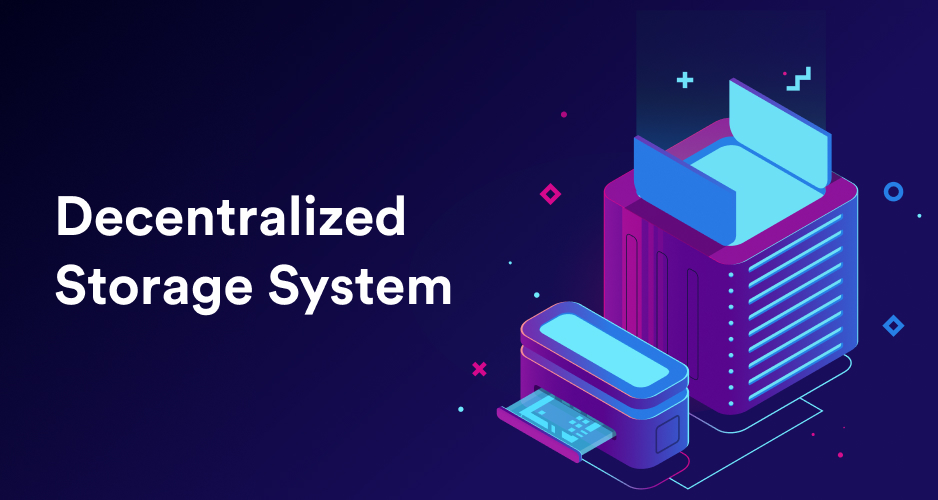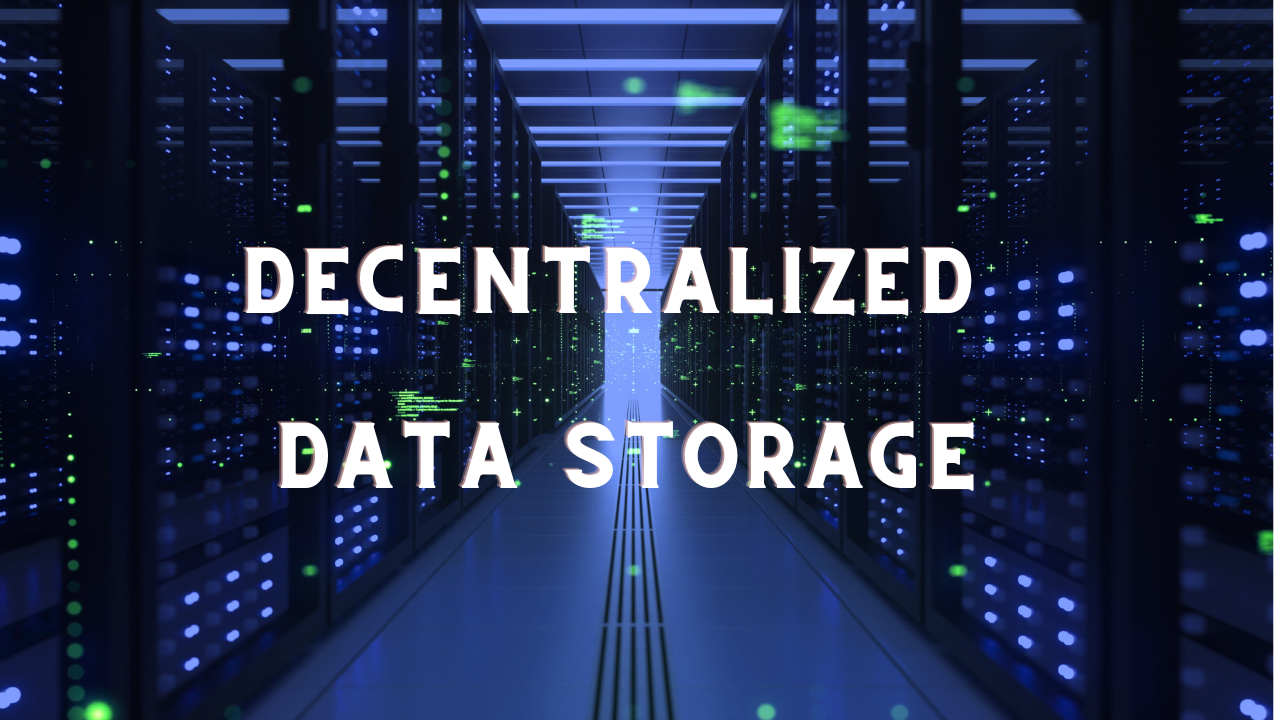In the rapidly evolving landscape of digital technology, the need for secure and efficient data storage solutions has become paramount. With the growth of decentralized technologies, the way we store and manage data is transforming. Centralized data storage solutions, while still prevalent, are increasingly seen as vulnerable to security breaches, data loss, and unauthorized access. This is where the concept of decentralized storage networks, specifically DePIN (Decentralized Physical Infrastructure Network), comes into play. The Role of DePIN in Decentralized Data Storage is crucial as it addresses these challenges by providing a more secure, scalable, and reliable method of storing data.
Understanding DePIN and Its Relevance in Decentralized Data Storage
What is DePIN?
DePIN, or Decentralized Physical Infrastructure Network, is a revolutionary approach to decentralized data storage. Unlike traditional centralized systems, where data is stored on a single server or a cluster of servers controlled by one entity, DePIN utilizes a decentralized network of nodes. Each node in the DePIN network stores a portion of the data, ensuring that no single point of failure can compromise the system. This decentralization is the cornerstone of DePIN’s security and efficiency, making it a critical component in the modern data storage landscape.
How DePIN Works
DePIN works by distributing data across a network of decentralized nodes, each contributing to the overall storage capacity. These nodes can be operated by individuals or organizations, incentivized through blockchain-based rewards for their participation. When data is uploaded to the DePIN network, it is broken down into smaller chunks, encrypted, and then distributed across various nodes. This process not only ensures data redundancy but also enhances security, as no single node holds the complete dataset. The Role of DePIN in Decentralized Data Storage is to provide a robust framework that mitigates the risks associated with centralized storage solutions.
The Role of DePIN in Enhancing Data Security
Reducing Single Points of Failure
One of the most significant advantages of DePIN is its ability to eliminate single points of failure. In centralized storage systems, a single server crash or security breach can lead to catastrophic data loss. However, with DePIN, data is distributed across multiple nodes, ensuring that even if one node fails, the data remains accessible and secure. This redundancy is a critical aspect of the Role of DePIN in Decentralized Data Storage.
Enhancing Data Privacy
Data privacy is a growing concern in the digital age, with increasing incidents of data breaches and unauthorized access. DePIN addresses this issue by encrypting data before it is stored on the network. The decentralized nature of DePIN ensures that no single entity has access to the complete dataset, thereby enhancing privacy. This feature makes DePIN an ideal solution for individuals and businesses looking to protect sensitive information.
Preventing Unauthorized Access
DePIN’s decentralized architecture plays a significant role in preventing unauthorized access to data. Traditional centralized storage systems are vulnerable to hacking attempts, as gaining access to the central server can potentially expose all stored data. In contrast, DePIN’s network requires an attacker to breach multiple nodes, each holding only a fragment of the encrypted data.
DePIN’s Role in Ensuring Data Integrity
Data Redundancy and Reliability
Data integrity is crucial in any storage system, ensuring that the information remains accurate, complete, and unaltered over time. DePIN’s decentralized nature inherently provides data redundancy, as multiple copies of data are stored across various nodes. This redundancy ensures that even if some nodes fail or are compromised, the data remains intact and accessible. The Role of DePIN in Decentralized Data Storage is pivotal in maintaining the reliability and integrity of stored data.
Immutable Records Through Blockchain Technology
DePIN leverages blockchain technology to maintain an immutable record of all transactions and data storage activities on the network. This immutability ensures that once data is written to the network, it cannot be altered or tampered with, providing a reliable and trustworthy record of data storage. This feature is particularly beneficial for industries that require a high level of data integrity, such as finance.
Advantages of DePIN Over Traditional Storage Solutions
Scalability and Flexibility
Traditional storage solutions often face limitations in terms of scalability. As data volumes increase, the infrastructure required to store and manage this data becomes more complex and expensive. DePIN, on the other hand, is inherently scalable. The decentralized nature of the network allows it to grow organically as more nodes are added, providing a flexible and cost-effective solution for managing large volumes of data. The Role of DePIN in Decentralized Data Storage is instrumental in offering a scalable and flexible alternative to traditional storage methods.
Cost-Effectiveness
Operating and maintaining centralized data storage systems can be costly, especially for businesses with large amounts of data. DePIN offers a more cost-effective solution by distributing the storage load across a decentralized network. The use of blockchain-based incentives ensures that participants in the network are fairly compensated, without the need for expensive centralized infrastructure. This cost-effectiveness is a significant benefit of the Role of DePIN in Decentralized Data Storage.
Resilience Against Censorship
Another critical advantage of DePIN over traditional storage solutions is its resilience against censorship. In centralized systems, data can be easily targeted and removed by authorities or malicious actors. However, DePIN’s decentralized architecture makes it difficult for any single entity to control or censor the data. This resilience is particularly important for individuals and organizations operating in regions with restrictive internet policies.
Join the future of secure data storage by investing in SRP Token. Be a part of the decentralized revolution today!
Real-World Applications of DePIN in Decentralized Data Storage
Decentralized Finance (DeFi)
DePIN plays a crucial role in the decentralized finance (DeFi) sector by providing secure and reliable data storage solutions. In DeFi, where financial transactions and smart contracts are executed on the blockchain, ensuring the integrity and security of data is paramount. DePIN’s decentralized storage network provides the necessary infrastructure to support these activities, safeguarding against data breaches and ensuring the reliability of financial transactions. The Role of DePIN in Decentralized Data Storage is essential in enabling the growth and success of the DeFi industry.
Supply Chain Management
Supply chain management relies heavily on accurate and reliable data to track the movement of goods and materials. DePIN’s decentralized storage network provides a secure and tamper-proof method of storing supply chain data, ensuring that all parties have access to accurate and up-to-date information. This transparency and security are crucial in maintaining the integrity of the supply chain and preventing fraud or discrepancies.
The Future of DePIN in Decentralized Data Storage
Advancements in Technology
As technology continues to evolve, so too will the capabilities of DePIN networks. Future advancements may include improved encryption methods, more efficient data distribution algorithms, and enhanced scalability. These technological improvements will further solidify the Role of DePIN in Decentralized Data Storage, making it an even more attractive option for businesses and individuals alike.
Broader Adoption Across Industries
As more industries recognize the benefits of decentralized data storage, the adoption of DePIN networks is expected to grow. From finance, the applications of DePIN are vast and varied. This widespread adoption will drive further innovation in the field, leading to new and exciting developments in decentralized storage solutions.
Integration with Other Decentralized Technologies
The future of DePIN also includes integration with other decentralized technologies, such as decentralized identity (DID) systems, decentralized autonomous organizations (DAOs), and decentralized marketplaces. These integrations will create a more cohesive and interconnected decentralized ecosystem, where data storage, identity verification, and transaction execution are all managed through decentralized networks. The Role of DePIN in Decentralized Data Storage will be a cornerstone in this emerging decentralized world.
Conclusion
The Role of DePIN in Decentralized Data Storage is transformative, offering a secure, scalable, and reliable alternative to traditional centralized storage solutions. By leveraging the power of decentralized networks, DePIN provides enhanced data security, privacy, and integrity, making it an essential component of the modern digital infrastructure. As technology continues to advance and the adoption of decentralized solutions grows, DePIN is poised to play a crucial role in shaping the future of data storage.

 China
China Russia
Russia India
India










4 Comments
Let’s spread the love! Tag a friend who would appreciate this post as much as you did.